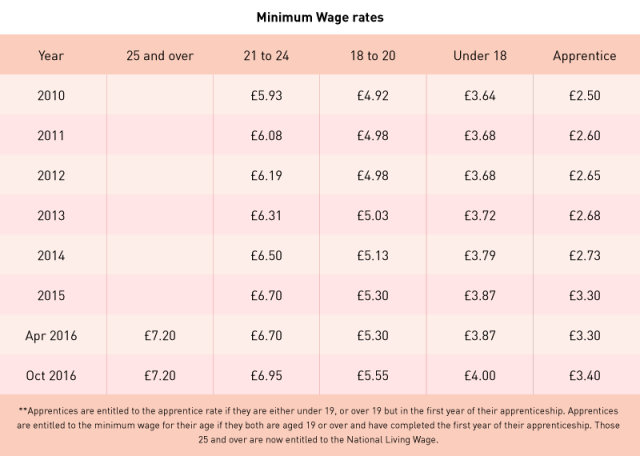The national minimum wage for apprentices will rise from £3.40 per hour to £3.50 – a bigger increase than rates for most other groups – following the autumn statement.
Chancellor Philip Hammond presented the self-proclaimed “balanced and prudent” budget plans to the House of Commons today.
He said next to nothing about FE, but a following statement released by the government revealed the 10p increase in the minimum wage for apprentices.
It is higher than most other minimum wage rate increase.
For 18 to 20 year olds, the increase is from £5.55 per hour to £5.60, while for 16 to 17 year olds – it will go up from £4.00 per hour to £4.05.
But for 21 to 24 year olds, it is going up from £6.95 per hour to £7.05.
It comes after it was announced eight months ago that the national minimum wage rate for apprentices would increase from £3.30 to £3.40 as of October 1 this year.
Sajid Javid, secretary of state for business, innovation and skills, announced the change in a written statement to parliament on March 14, the first day of National Apprenticeship Week 2016.
He explained that the LPC’s 2016 report had made the recommendation for the apprenticeship increase.
In October 2015, FE Week reported that apprentices had gained a 20 per cent increase to their National Minimum Wage, which jumped to £3.30 an-hour.
Mr Javid said at the time that the sharp rise, from the old £2.73-an-hour rate, was “the largest in history, making sure that apprenticeships remain an attractive option for young people”.
The increase, originally announced in March 2015, represented a rejection of the Low Pay Commission’s call in February for the apprentice minimum wage to rise by 7p.
The LPC itself had rejected a proposal from then-business secretary Vince Cable to bring the apprentice rate in line with the rate for 16 to 18-year-olds, which was £3.79 per hour at the time.
The LPC, on which the CBI’s Neil Carberry sits, is an independent body that advises the government about the National Living Wage and the National Minimum Wage.
There are nine low pay commissioners drawn from a range of employee, employer and academic backgrounds.
Previous minimum wage increase:










Your thoughts